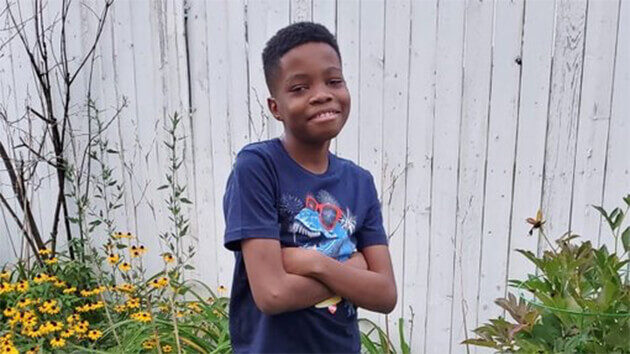Pediatric Sickle Cell Disease Program Treats Patients with Lifelong Blood Disorder

For Mickoy Davis, 12, of Watervliet, cherished summer childhood pastimes like a cool refreshing dip in the pool and pick-up basketball with friends are activities to be avoided at all cost.
Diagnosed at birth with sickle cell disease, Davis must navigate a world fraught with challenges that his peers never even remotely consider. Getting dehydrated from playing sports or a pool’s chilly waters can set off episodes of “unbearable, excruciating pain” landing Davis in the hospital, said his mother, Daneka Davis.
Fortunately, for Davis and patients like him, welcome relief from these bouts, known as a pain crisis, can be found through Albany Medical Center’s comprehensive Pediatric Sickle Cell Disease Program -- the region’s only sickle cell program. As part of the Melodies Center, the clinic treats nearly 130 patients, ranging in age from newborns to those in their early 20s.
“Sickle cell disease is an inherited red blood cell disorder that causes your body to produce sickle-shaped red blood cells, instead of round ones, which leads to multiple chronic and debilitating symptoms,” said Maria O. Boucher, MD, program director.
Often diagnosed at birth through a routine screening test, patients typically experience chronic pain and are at high-risk for infections, stroke and damage to multiple organs such as eyes, kidneys, lungs and bones. As a result, patients often have shorter life expectancies. Currently the only cure to sickle cell disease, added Dr. Boucher, is through a bone marrow transplant.
Sickle cell disease disproportionally affects African Americans. Many of the clinic’s patients hail from overseas countries including Tanzania and the Congo. Davis’ family emigrated from Jamaica in 2013. Many others claim Mediterranean and Hispanic descent. As a native of Puerto Rico, Dr. Boucher said serving populations from underrepresented backgrounds was a natural fit.
To better serve the patients’ needs, the program partnered with Albany Medical College’s Underrepresented Student Alliance and was one of six programs in the nation to secure a grant from the American Academy of Pediatrics. “The ideas came from our families, just listening to what extra support they need, and ideas on how to improve community engagement,” said Dr. Boucher.
In particular, families expressed the need for a program to help patients make a successful transition between pediatric and adult care. Patients and their families work with a multidisciplinary transition group, including a pediatric hematologist, a primary care provider whose focus is on transition, a patient navigator, a nurse educator and a social worker and participate in quarterly transition clinics and an annual sickle cell disease symposium.
Nearly 30 patients are currently improving their ability to communicate with their health care providers and increasing their ability to navigate complex adult care systems.
Davis’s mother, Daneka Davis, first brought her son to the clinic in 2013. Through medication and regular follow-up visits, she said her son, now in seventh grade, has been able to control his pain crisis moments much better, describing the transformation as “pretty amazing.” He hasn’t had an episode that required hospitalization in more than two years, she added.
Like Davis, many patients express a sense of isolation, not knowing any other kids with sickle cell disease. In response, Dr. Boucher said the clinic is developing a support group to address this unmet need.
It’s that sense of inclusiveness that Dr. Boucher strives to instill in her patients, sharing the story of one teenage patient, the very first sickle cell patient, invited to sing on stage as part of the annual Melodies of Christmas concerts a few years ago. “Her dream is to be a singer-celebrity so she was very happy,” recalled Dr. Boucher.
Hopefully one day, supported the Albany Medical Center’s comprehensive Pediatric Sickle Cell Disease Program, Davis will be able to live his simple dream of lacing up his high tops and joining his friends on the basketball court.